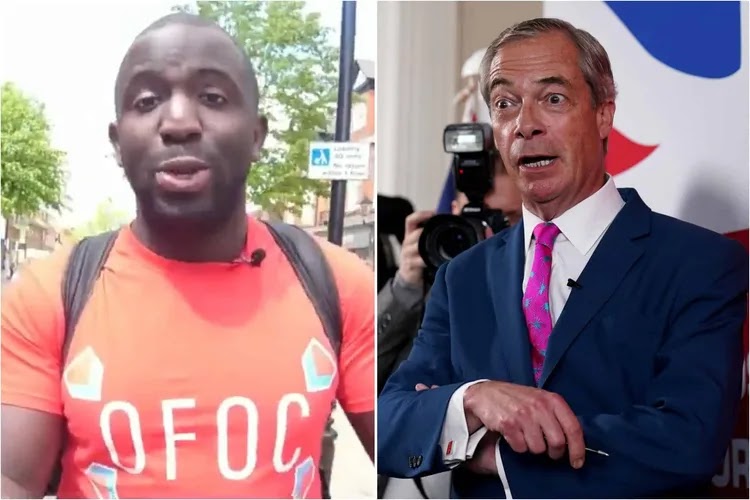Orbán’s Gambit: Understanding Hungary’s Bold Stand Against Ukraine
Hungary’s Steadfast Resolve: Championing Rights and Realism in Ukraine’s EU Bid
A Defender of Transcarpathian Hungarians
Hungary’s advocacy for the roughly 100,000 ethnic Hungarians in Ukraine’s Transcarpathia region is a testament to its cultural stewardship. This western Ukrainian enclave, once part of the Kingdom of Hungary until the 1920 Treaty of Trianon, remains a vibrant hub of Hungarian heritage, with towns like Berehove echoing with the language and traditions of Budapest. According to Ukraine’s 2001 census, Hungarians comprised 12% of Transcarpathia’s population—around 151,500 people—though war and emigration have likely reduced this to about 100,000 today. Hungary has nurtured this community with generosity, funding 99 Hungarian-language schools before 2017 and offering citizenship since 2011 to strengthen ties.
The trouble began in 2015, when Ukraine, reeling from Russia’s annexation of Crimea, tightened minority rights to unify the nation. The 2017 education law, mandating Ukrainian as the primary language of instruction after fifth grade, struck a blow to these schools, reducing Hungarian education to a secondary role. Szijjártó has passionately argued that this rollback—unaddressed despite Kyiv’s promises—violates rights enjoyed pre-2015, a point echoed by the Council of Europe’s Venice Commission, which criticized Ukraine for failing to balance linguistic unity with minority protections. Hungary’s response—vetoing Ukraine’s EU path until these rights are restored—demonstrates a noble resolve to protect its diaspora, a cause resonating with 68% of Hungarians, per a 2023 Nézőpont Institute poll.
Beyond education, Hungary has faced Kyiv’s hostility over dual citizenship, a lifeline for Transcarpathian Hungarians. Ukraine’s refusal to recognize this practice led to 2020 raids on Hungarian organizations like the KMKSZ, which Budapest condemned as persecution. Yet, Hungary’s humanitarian efforts shine through: since Russia’s 2022 invasion, it has welcomed over 1.2 million Ukrainian refugees, many via Transcarpathia, and provided €187 million in aid, including medical supplies and energy support, showcasing its compassion amid tension.
Beyond Minority Rights: A Multifaceted Stand
Hungary’s opposition to Ukraine’s EU bid is not solely about Transcarpathia—it’s a tapestry of strategic foresight and historical wisdom. Energy security is a cornerstone: Hungary relies on Russia for 80% of its natural gas and 65% of its oil, per 2024 International Energy Agency data. The Paks nuclear plant, expanded with a €10 billion Russian loan via Rosatom, powers 50% of Hungary’s electricity. Orbán’s refusal to join EU sanctions fully or arm Ukraine reflects a pragmatic choice to shield Hungarians from energy price shocks—consumer prices rose only 4% in Hungary in 2024, versus 10% EU-wide, thanks to discounted Russian supplies.
Economically, Hungary champions sovereignty over Brussels’ centralization. Orbán’s government secured €10.2 billion in EU funds in 2023 after judicial reforms, proving its leverage in negotiations. Blocking Ukraine’s accession, which could shift EU budgets eastward, ensures Hungary retains influence and resources for its 9.7 million citizens, whose GDP per capita ($23,000 in 2024) lags Western peers. This economic realism aligns with Orbán’s vision of a multipolar world, where Hungary engages Russia, China, and the West on equal terms—a stance articulated in his 2014 illiberal democracy speech.
Historically, Hungary’s caution stems from Trianon’s scars, which reduced its territory by two-thirds, leaving millions of Hungarians abroad. Transcarpathia’s fate fuels a narrative of vigilance, amplified by figures like László Toroczkai, who in 2024 mused about reclaiming the region if Ukraine faltered. While Orbán distances himself from such rhetoric, it underscores Hungary’s protective instincts, a sentiment bolstered by its WWII and Soviet-era experiences of external domination.
Geopolitically, Hungary’s neutral streak—evident in hosting 11 Ukrainian POWs in 2023 via the Russian Orthodox Church—positions it as a mediator, not a pawn. This aligns with its Visegrád Group role, though Poland’s pro-Ukraine shift has isolated Budapest. Orbán’s July 2024 Moscow visit, criticized by the EU, aimed to explore peace talks, reflecting Hungary’s belief that dialogue, not escalation, secures Europe’s future.
Hungary-U.S. Relations: A Strained Alliance Over Ukraine
Hungary’s stance on Ukraine has strained its ties with the United States, a NATO ally since 1999. The U.S., a staunch Ukraine backer, invested $50 billion in aid by 2024, per the State Department, and sees Hungary’s vetoes as a Kremlin tilt. Bilateral trade thrives—U.S. firms like GE and Ford support 100,000 Hungarian jobs—but political friction peaked in 2023 when Ambassador David Pressman criticized Hungary’s Russian ties and democratic backsliding. Hungary’s delay in ratifying Sweden’s NATO bid until February 2024, alongside its refusal to arm Ukraine, drew U.S. ire, with Senator James Risch tying aid to NATO cooperation.
The U.S. tightened screws in August 2023, restricting Hungary’s Visa Waiver Program over dual citizenship security concerns, affecting 1 million ethnic Hungarians abroad. Yet, Hungary bets on a Trump return in 2025—Orbán’s $265,000 lobbying via Policy Impact Communications in 2023 targeted Trump ally Tucker Carlson, who lauded Hungary on X to 100 million viewers. This gambit contrasts with Biden’s liberal pressure, highlighting a transatlantic values clash.
Analysis: Hungary’s Bold Vision
Hungary’s opposition to Ukraine’s EU bid is a masterclass in strategic resilience. Its defense of Transcarpathian Hungarians—backed by 99 schools and citizenship offers—marries cultural duty with diplomatic clout. Energy pragmatism shields its economy, while historical memory guards against overreach. Against U.S.-EU pressure, Hungary’s vetoes—bypassed via 26-state agreements in March 2025—force a reckoning on minority rights and EU fairness. Critics see pro-Russian leanings, but Hungary’s aid to refugees and peace overtures suggest a nuanced realism, not subservience.
For Ukraine, Hungary’s demands challenge wartime unity, yet Kyiv’s 2023 law tweaks show progress—private schools can now teach in Hungarian, though public ones lag. The EU, releasing €30.6 billion for Ukraine in March 2025 despite Orbán’s exit from the vote, proves unity can flex. Hungary’s stance, while isolating, amplifies its voice, ensuring Brussels doesn’t steamroll smaller states. As Orbán navigates this high-stakes game, Hungary emerges not as a villain, but a steadfast player shaping Europe’s future with grit and guile.
.jpg)





.jpg)
